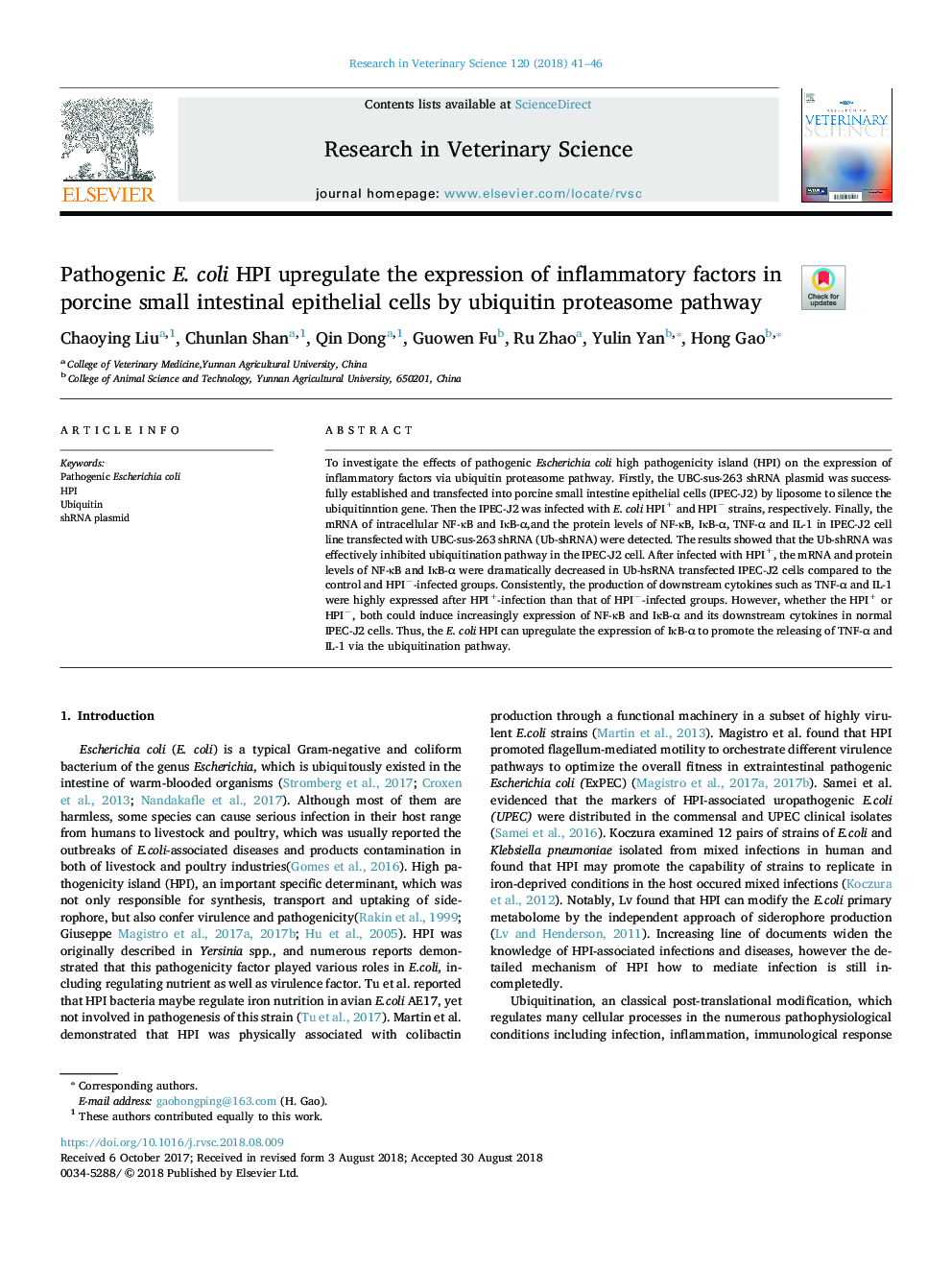| Article ID | Journal | Published Year | Pages | File Type |
|---|---|---|---|---|
| 10137369 | Research in Veterinary Science | 2018 | 6 Pages |
Abstract
To investigate the effects of pathogenic Escherichia coli high pathogenicity island (HPI) on the expression of inflammatory factors via ubiquitin proteasome pathway. Firstly, the UBC-sus-263 shRNA plasmid was successfully established and transfected into porcine small intestine epithelial cells (IPEC-J2) by liposome to silence the ubiquitinntion gene. Then the IPEC-J2 was infected with E. coli HPI+ and HPIâ strains, respectively. Finally, the mRNA of intracellular NF-κB and IκB-α,and the protein levels of NF-κB, IκB-α, TNF-α and IL-1 in IPEC-J2 cell line transfected with UBC-sus-263 shRNA (Ub-shRNA) were detected. The results showed that the Ub-shRNA was effectively inhibited ubiquitination pathway in the IPEC-J2 cell. After infected with HPI+, the mRNA and protein levels of NF-κB and IκB-α were dramatically decreased in Ub-hsRNA transfected IPEC-J2 cells compared to the control and HPIâ-infected groups. Consistently, the production of downstream cytokines such as TNF-α and IL-1 were highly expressed after HPI+-infection than that of HPIâ-infected groups. However, whether the HPI+ or HPIâ, both could induce increasingly expression of NF-κB and IκB-α and its downstream cytokines in normal IPEC-J2 cells. Thus, the E. coli HPI can upregulate the expression of IκB-α to promote the releasing of TNF-α and IL-1 via the ubiquitination pathway.
Related Topics
Life Sciences
Agricultural and Biological Sciences
Animal Science and Zoology
Authors
Chaoying Liu, Chunlan Shan, Qin Dong, Guowen Fu, Ru Zhao, Yulin Yan, Hong Gao,
